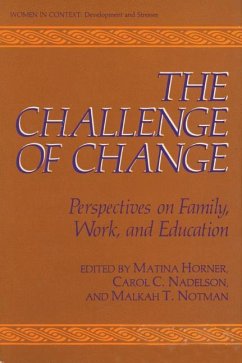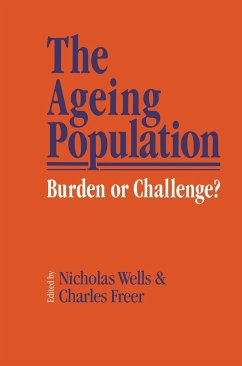
Handbook of Clinical Sociology
Versandkostenfrei!
Versandfertig in 1-2 Wochen
39,99 €
inkl. MwSt.

PAYBACK Punkte
20 °P sammeln!
This book is a most welcome addition to the growing literature on sociological practice. There isa wealthofwisdomandexperience reflected in thesechaptersas well as a wide variety ofexamples of sociology in action. Clinical sociology, in its broadest sense, is the application of a sociological perspectivetofacilitatechange. Itspractitionersareprimarilychangeagentsrather than scholars or researchers, and work with a client, be that an individual, family, group, organization, or community. The reappearance and growthofclinical sociology during the past decade is therealizationofavisionofmine,born...
This book is a most welcome addition to the growing literature on sociological practice. There isa wealthofwisdomandexperience reflected in thesechaptersas well as a wide variety ofexamples of sociology in action. Clinical sociology, in its broadest sense, is the application of a sociological perspectivetofacilitatechange. Itspractitionersareprimarilychangeagentsrather than scholars or researchers, and work with a client, be that an individual, family, group, organization, or community. The reappearance and growthofclinical sociology during the past decade is therealizationofavisionofmine,borninthe 1960sand 1970soutofmyangerand frustration-first as a graduate studentand then as a professor-thatsociologists, unlike their psychological brethren, did not practice what they preached. Persons trainedinotherdisciplineswere practicingclinicalsociology,and those fewsociolo gists who did kept it a secret. The ClinicalSociologyAssociation, which I cofounded in 1978, had itsbegin nings at aroundtable I led at the American Sociological Association meetings in New York in 1976. I hadjust concluded four years as the only sociologist on the facultyoftheCaliforniaSchoolofProfessionalPsychologyinLosAngelesteaching graduateclinicalpsychologystudentshowtodosociology. Isawsociologygivingup by default a role in change efforts that necessitate the consideration of social systems.Socialworkers, psychologists,politicalscientists,gerontologists,criminolo gists, marriage and family counselors, to name a few, have eagerly gone where we had failed to tread. Practitioners in these fields, as social systems change agents, have carved a niche, often protecting themselves with licensing laws and other restrictions that make entry by sociologists difficult. Thus we are latecomers in a crowded field.












